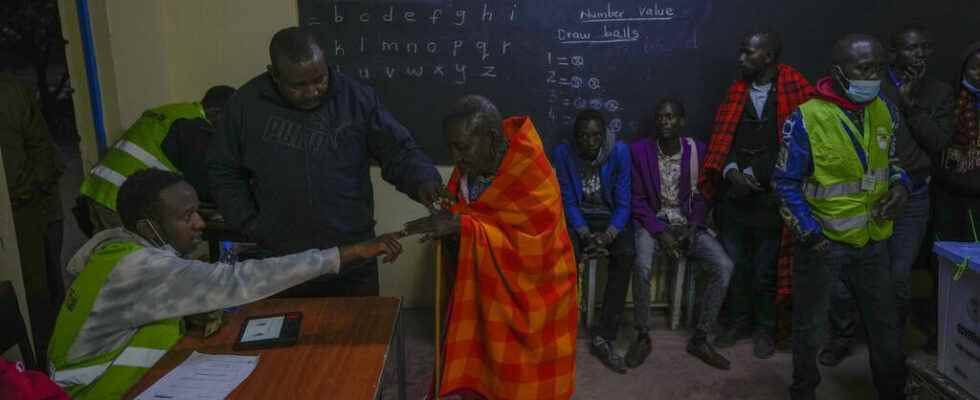It’s voting day in Kenya. Kenya’s 22.1 million voters are being called to the polls to elect Uhuru Kenyatta’s successor. The ballot promises to be tight between the two main candidates, William Ruto and Raila Odinga. And the pressure is great on the Kenyan Electoral Commission, the IEBC. In 2017, the Supreme Court had canceled the vote by denouncing “irregularities”, in particular during the transmission of the results. Lessons have been learned. How will it actually turn out this time around?
with our correspondent in Nairobi, Florence Morice
The Electoral Commission claims to have multiplied the safeguards, to avoid the fiasco of 2017. Firstly, the transmission of the results will be done by two channels in parallel. A photo of the result form will be sent via secure messaging for compilation, while the original paper copy must be sent to the compilation center to allow comparison.
These forms will contain unique QR codes, assures the Electoral Commission. Several tests were carried out. A first in June resulted in a success rate of only 46%. A second in July of 92%, but on a smaller sample: 580 offices out of more than 46,000… “Not enough”, according to Mulle Musau, of the electoral observation group ELOG, to rule out the possibility of a failure.
► Read also: in Kenya, civil society prepares to monitor the regularity of the vote
Furthermore, this test did not concern the 1,200 offices located in areas without internet coverage. The electoral commission claims to have installed satellite modems there. By way of comparison, in 2017, more than 11,000 offices did not have good internet coverage. Some results had ended up being sent by SMS. It remains to be seen whether this device will be sufficient to guarantee confidence in the results and avoid a dispute, while the commission has been at the heart of several controversies during the campaign.
► Read also : Presidential election in Kenya, the stakes of a ballot that promises to be tight
One of his controversies concerns the electoral register. An independent audit revealed in June that it contained numerous shortcomings, such as duplicates, deceased voters and security flaws. The commission claims to have cleaned it since. These are general elections. Kenyan voters will have to vote a total of 6 times on Tuesday, to choose not only their president but also their deputies, senators, governors and local elected officials.
